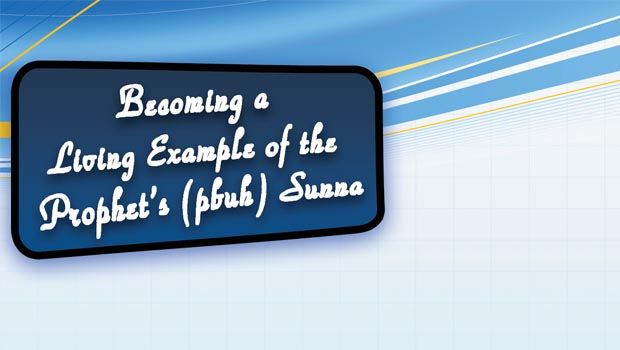We live in an age of extremism. No, not just violent manifestations of extremism that the media tends to focus on almost exclusively. Extremism of every kind: from the way we eat to the way that we indulge in materialism to the way that we entertain ourselves. One of the most evident manifestations of extreme behavior is in people spending way beyond their means, leading eventually to the collapse of an entire economy. As such, in this age—if we are to be spiritually and financially successful—we must rediscover the value of temperance and begin, once again, to live within our means.
One of the great ethical teachings of our religion is the principle of balance and moderation. This principle, the Qur’an teaches us, must permeate everything we do from the way that we eat and drink to the way we spend our wealth. For instance, God—glorious and supreme—describes the servants of the all-Merciful as “those who when they spend are neither wasteful nor miserly, but rather maintain a balance between the two” (Qur’an 25:67). As such, the Prophet (s) frequently urged his community to live within their means and discouraged the acquiring of debt, especially the excessive crippling type of debt that has come to define the modern economy. The Prophet (s) frequently sought divine protection against debt in his supplications. “O Allah, suffice me with what You have allowed instead of what You have forbidden,” said the Messenger of God. “And make me independent of all others besides You.” Interestingly, one of America’s founding fathers and most cited philosophers—Benjamin Franklin—also often preached against excessive spending by warning his fellow citizens: “Buy what thou hast no need of, and before long thou shall sell thy necessaries” and advising them: “Rather go to bed supper-less than rise in debt.”
In reality, the ego can never be satisfied,
it only grows in its wants. True and everlasting happiness is found in freeing ourselves from our
egos, and attaching ourselves to Allah.
Given that our feet are still wet from the blessed month of Ramadan in which we learn how to restrain ourselves from over indulgence in earthly pleasures, it is important for us to seriously consider how we use our wealth in three particular areas: eating habits, attainment of material possessions, and entertainment. Even if we have enough money to indulge freely in these three areas, we have to consider whether or not it is the best and wisest way for us to be spending our money given the fact that we will be asked about every single penny that we spend on the Day of Accountability.
According to a non-profit organization that monitors food usage in industrialized countries—Next Generation Food—it is estimated that forty percent (40%) of food in the United States is thrown out. Sadly, from personal observation the wastage within the American Muslim household is probably no less. This is truly tragic given that there are so many people who die every year in this world from lack of basic nutrition. Furthermore, in America we tend to eat more than any other country leading to a national epidemic of obesity. This over-indulgence in eating is simply contrary to the sunnah of our beloved Messenger (s) who taught us, “The children of Adam fill no vessel worse than their stomachs. Sufficient for the children of Adam are a few morsels to keep their backs straight. But, if they must eat more then let one-third be for food, one-third for water, and one-third for easy breathing.” In the Qur’an too, God says: “Eat and drink, but not excessively, for God does not love the excessive.” If we live according to these marvelous teachings not only will we live healthier lives, but we will find it easier to live within our means. Undoubtedly, controlling the appetite of the stomach is one of the more difficult spiritual disciplines. But, if we eat with the intention of gaining strength to worship and do good deeds rather than satisfy our pleasures; begin eating by mentioning God’s Name; and eat in the good company of others, then there will be so much blessing in the food that we eat that only a little bit of food will suffice in giving us energy and in satisfying our hunger. So, the first task in living within our means is to carefully look at how and how much we spend on satisfying the appetite of the stomach.
In a similar fashion, our need for material possessions is so much less than what we think. Consumer society has convinced us that the more we have the happier we will be. But, as the Prophet (s) beautifully observed, “If the son of Adam was given a mountain of gold he would only desire a second.” In other words, material goods—no matter how much—can never satisfy our desire to be happy and fulfilled. How can something that is in itself fleeting lead to a state of permanent contentment? Not only is materialism financially foolish, it is also spiritually detrimental. The Prophet (s) warned, “Wretched is the slave of the dinar and dirham.” So, we need to take a good look at our closets and our garages and ask ourselves how much of what we have do we really need, and given how much we have do we really need more? And, instead of buying the biggest car or most spacious house because it’s the “thing to do,” we have to pause and ask ourselves if that money can be better spent or saved.
The world of technological inventions has seen a rise in people’s desire for fun gadgets that are rarely particularly useful and more often just simply entertaining. The entertainment industry has permeated almost every home in the guise of a twenty-first century babysitter. The irony is that the entertainment industry has found a way to distract people in useless entertainment for longer periods of life so that now many forty some year old men spend their weekends playing video games and watching football. As Muslims we have to guard against living for the sake of entertaining ourselves to the point that we make play and passing delights our religion (Qur’an 7:51). God tells us in the Qur’an that the illusory life is nothing but “play and amusement” (Qur’an 6:32) But, the real life is not about “mere idle play” (Qur’an 21:16). So, this lack of seriousness about life leads to an excessive amount of money spent on frivolous things and activities. This is not to deny the need for fun and relaxation; but it is to question how much fun and relaxation we really need to de-stress in life and how much money we really need to spend to entertain ourselves.
The underlying cause of excessive human behavior in matters of spending is this prevalent but false notion that happiness comes from satisfying the ego’s needs and desires. In reality, the ego can never be satisfied, it only grows in its wants the more that we feed it. True and everlasting happiness is found in freeing ourselves from our egos, and attaching ourselves to Allah. In seeking God’s pleasure, we find a sweetness and pleasure in life that no fleeting thing can ever give us. Our spiritual challenge is to become a zahid or one who engages in zuhud—which is about non-attachment more than non-possession. If we can learn to detach ourselves from “things” then living within our means will not only give us a financial path to success but also a spiritual path to everlasting joy.





